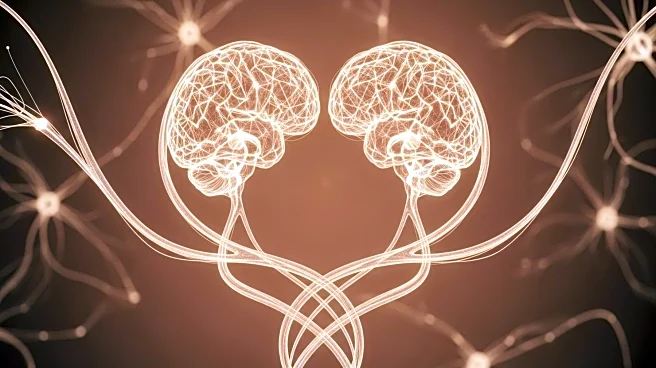What's Happening?
A recent study by Yale researchers has discovered that the social perception pathway in the brain, responsible for processing faces, gaze, and speech, is active at birth. This network's early activation suggests that newborns are predisposed to social engagement. The study, published in Biological Psychiatry: Global Open Science, used advanced imaging to show robust connectivity in brain regions associated with visual and social processing. Infants with stronger connectivity in these areas demonstrated greater attention to faces at four months and fewer social difficulties by 18 months. The findings could aid in early detection of autism spectrum disorder.
Why It's Important?
The study provides crucial insights into the neural foundations of social behavior, potentially transforming early diagnosis and intervention strategies for autism spectrum disorder. Understanding the early development of social perception pathways can help identify children at risk for social difficulties, allowing for timely interventions. This research underscores the importance of early brain development in shaping social skills, which are critical for personal and professional success. The findings could influence future research and healthcare practices, emphasizing the need for early monitoring of social development in infants.
What's Next?
Researchers plan to further investigate the brain processes driving social attention in typical and atypical development. They aim to explore additional measures of attention and follow a larger cohort of children over time. This ongoing research could lead to the development of new diagnostic tools and therapeutic approaches for autism and other social disorders. The study's findings may also prompt a reevaluation of current practices in pediatric healthcare, emphasizing the importance of early detection and intervention in social development.
Beyond the Headlines
The study highlights the potential for neuroscience to inform public health strategies and educational practices. It raises questions about the role of genetics and environment in shaping social behavior from birth. The research also points to the need for interdisciplinary collaboration in understanding complex developmental processes. As the field of neuroscience advances, such studies could lead to broader societal changes in how we support and nurture children's social development.










